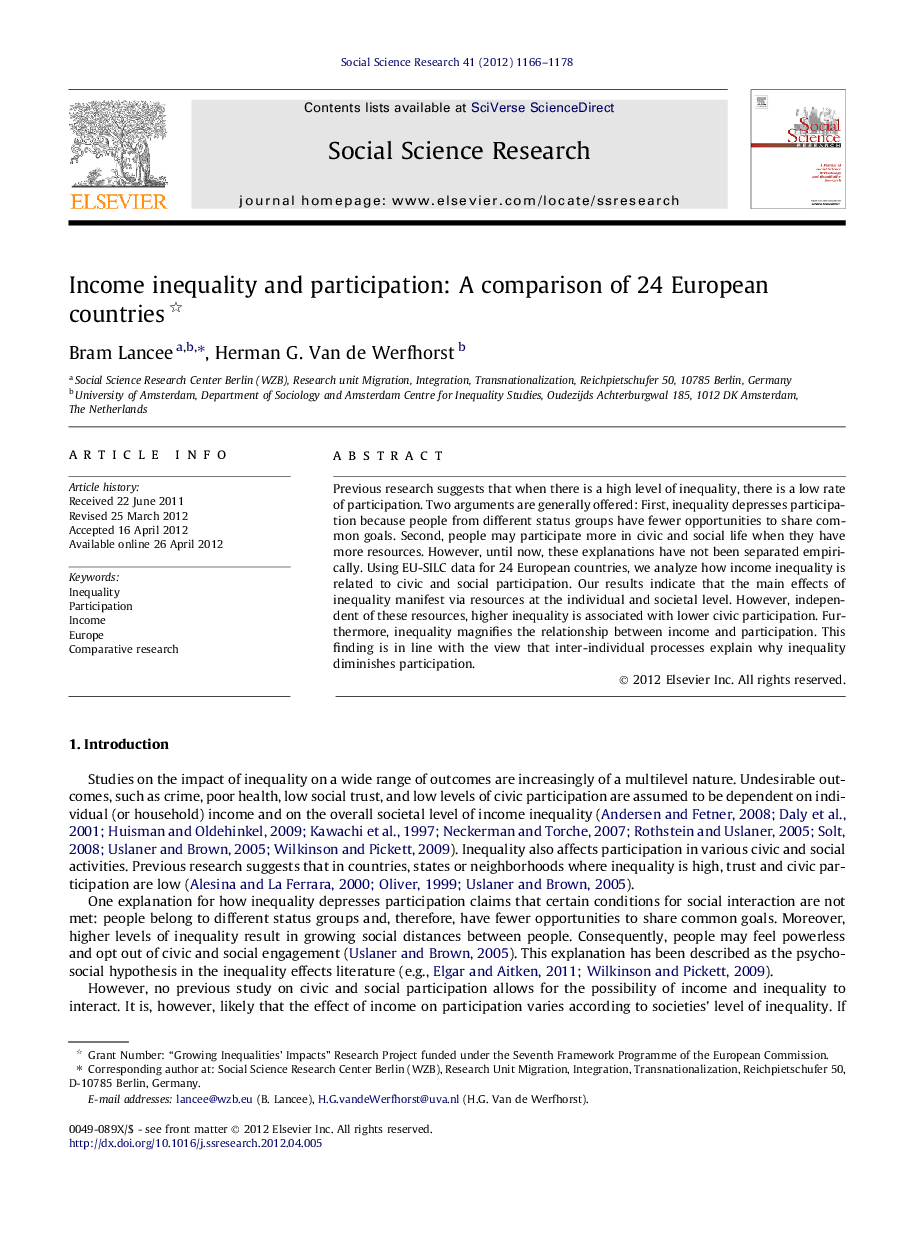| Article ID | Journal | Published Year | Pages | File Type |
|---|---|---|---|---|
| 955942 | Social Science Research | 2012 | 13 Pages |
Previous research suggests that when there is a high level of inequality, there is a low rate of participation. Two arguments are generally offered: First, inequality depresses participation because people from different status groups have fewer opportunities to share common goals. Second, people may participate more in civic and social life when they have more resources. However, until now, these explanations have not been separated empirically. Using EU-SILC data for 24 European countries, we analyze how income inequality is related to civic and social participation. Our results indicate that the main effects of inequality manifest via resources at the individual and societal level. However, independent of these resources, higher inequality is associated with lower civic participation. Furthermore, inequality magnifies the relationship between income and participation. This finding is in line with the view that inter-individual processes explain why inequality diminishes participation.
► We examine the effect of income inequality on civic and social participation. ► Where inequality is higher, participation is lower. ► Also when controlling for micro- and macro-resources, inequality affects participation. ► Higher inequality magnifies the relation between income and participation.
